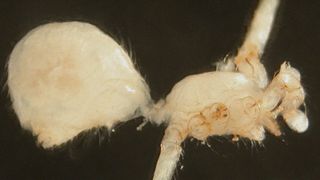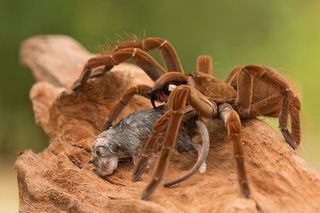Spiders
Latest about Spiders

Diving bell spider: The only aquatic arachnid that creates a web underwater to live in
By Megan Shersby published
Diving bell spiders are also weird when it comes to sex, with males occasionally gobbling up females in reverse sexual cannibalism.
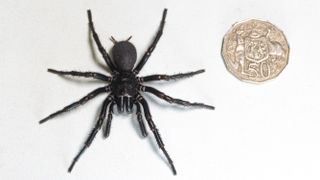
Deadly male funnel-web spider 'Hercules' breaks record as biggest ever discovered
By Stephanie Pappas published
"Hercules" the funnel-web spider is the largest male of the species ever found.
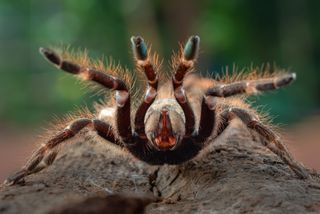
Why are tarantulas so hairy?
By Elise Poore published
Tarantulas use their "hair" for all kinds of things, including smelling and tasting.

Newly discovered Antarctic sea spider with 'boxing glove' claws pulled up from ocean floor
By Ethan Freedman published
A newly discovered species of sea spider was pulled up from more than 1,800 feet below the surface of Antarctica's Ross Sea.

Wolf spider mama wearing crown of babies captured in stunning photo
By Hannah Osborne published
Winning images from The Nature Conservancy's 2023 Global Photo Contest include a wolf spider in a Maryland park with a hat made of her own babies.
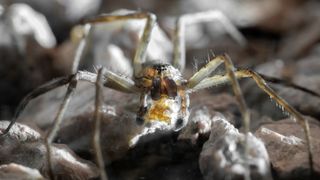
When stressed, these male spiders woo mates with empty 'take-out containers' instead of dinner
By Ethan Freedman published
When times get lean, male spiders may cheat more when wooing females by offering them worthless gifts of leftovers or dry leaves, rather than tasty food.
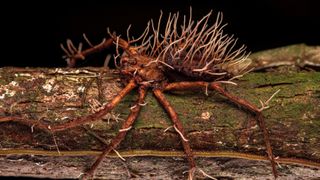
Horrifying photo captures moment parasitic fungus bursts from huge spider's body
By Hannah Osborne published
"While it is not uncommon to encounter insects parasitized by 'zombie' fungi in the wild, it is a rarity to witness large spiders succumbing to these fungal conquerors," said evolutionary biologist Roberto García-Roa, who took the photograph.
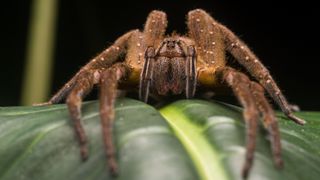
No, this spider's venom will not give you a permanent erection, but it might last a few hours
By Ben Turner published
A spider whose venom can cause a lot of pain, elevated blood pressure and hours-long erections was found among a bunch of bananas in an Austrian supermarket.
Get the world’s most fascinating discoveries delivered straight to your inbox.


